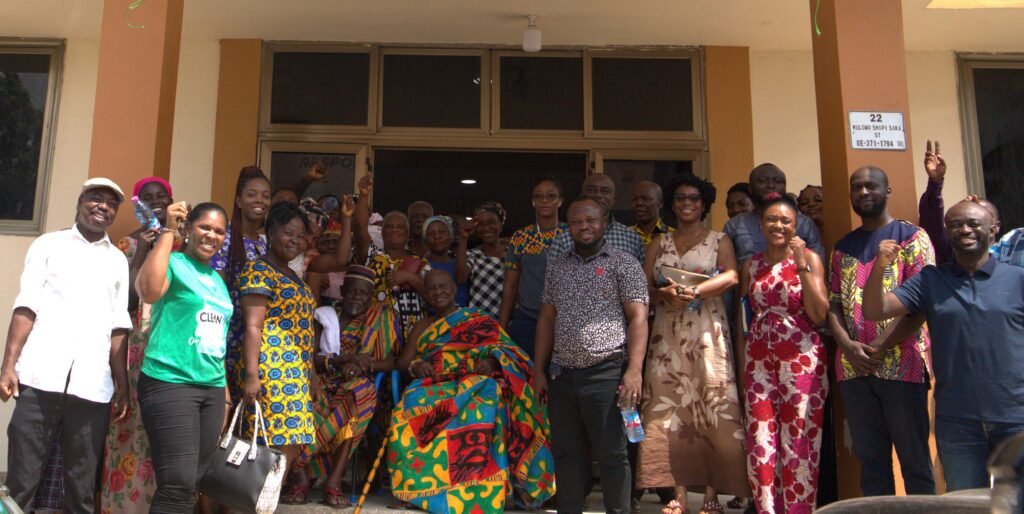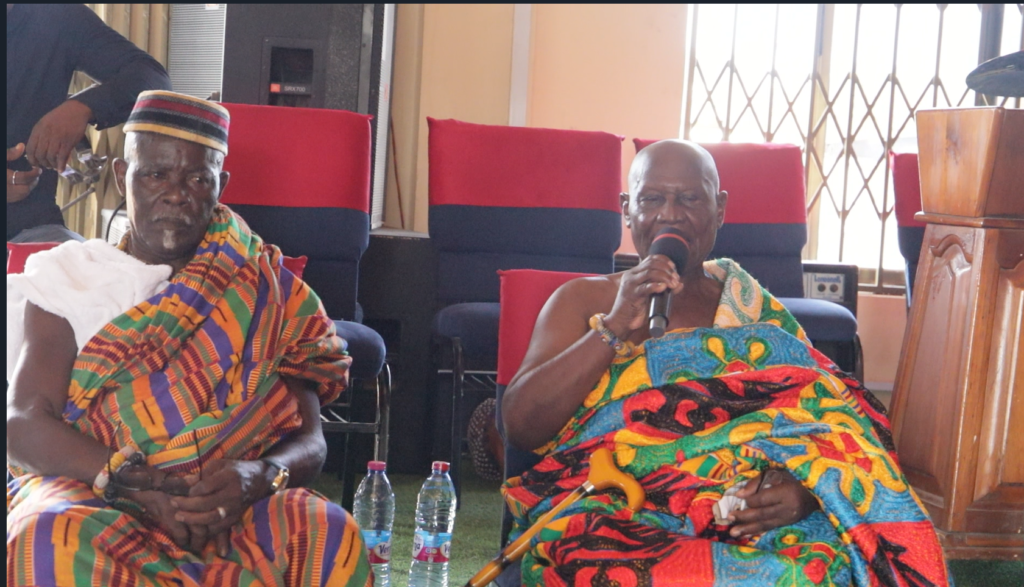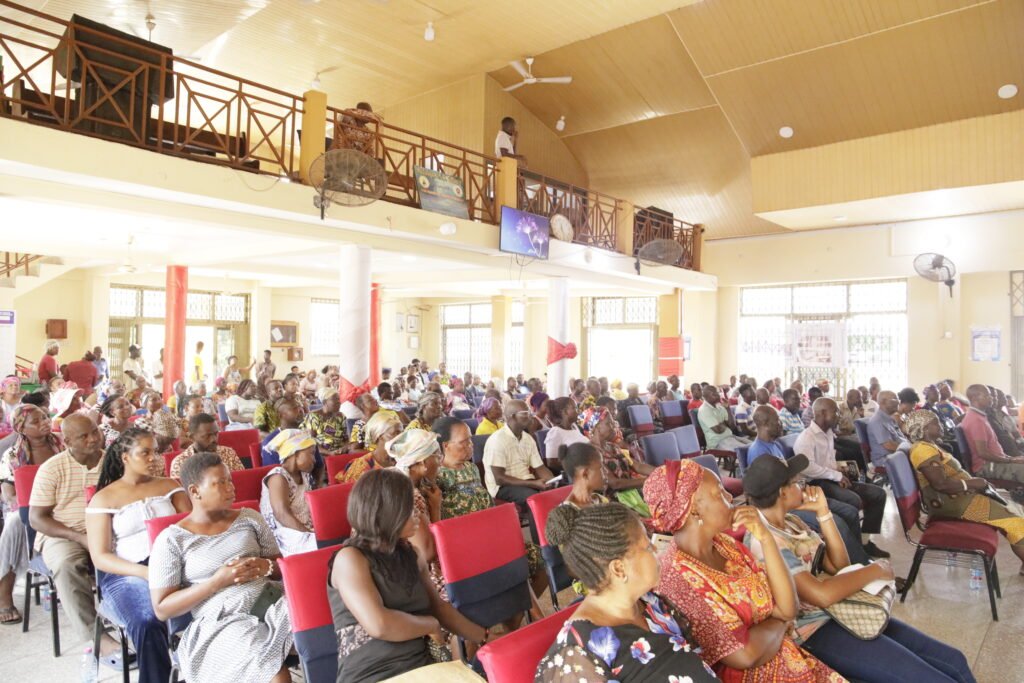
The Greater Accra Resilient and Integrated Development (GARID) Project has held separate stakeholders’ engagement programmes in Alogboshie and Akweteyman as part of efforts to ensure community involvement and collaboration in the rollout of upgrading works in the two flood-prone settlements.
In his opening remarks, the GARID Project Coordinator, Dr. Kwadwo Ohene Sarfoh, emphasized the significance of the upgrading interventions in tackling flooding and solid waste management challenges in the two communities. “Your communities deserve sustainable and resilient infrastructure that can help curb the perennial flooding incidences in the area. I urge you all to cooperate and collaborate with the Project team to ensure successful implementation of these transformative interventions in your respective communities,” said Dr. Sarfoh.
The Slum Upgrading and Community Development Specialist, Joseph Ampadu-Boakye, took participants through the scope of the upgrading works to be carried out in the communities. He thanked the Community Development Committees and other key stakeholders for their active participation in the development of the Community Upgrading Plans. “We are grateful for your participation and inputs which have helped our Consultants to come out with interventions that meet specific flood and solid waste management needs of your respective communities,” Mr. Ampadu-Boakye indicated.
During the sessions, the Social Safeguards Specialist, Abdul-Rahim Abdulai, shed light on the potential resettlement impacts of the various interventions and the mitigation measures the project has put in place to reduce the impacts on the Project Affected Persons (PAPs). He urged all PAPs to cooperate with the project team to ensure speedy implementation of the Resettlement Action Plans.
Mr. Abdulai also highlighted the significance of the Project’s Grievance Redress Mechanism, which provides platforms for community members to voice their concerns and seek resolutions. He introduced to stakeholders, the Project’s toll-free lines, 0800800900 and 0800500600, and other avenues through which community members can contact the project on issues relating to the implementation of the various interventions.
Another key highlight of Mr. Abdulai’s submission was on Gender-Based Violence, Sexual Harassment and Sexual Exploitation and Abuse. He spelt out measures the Project has put in place to prevent and respond to such issues and cautioned the community on how to handle themselves with the influx of construction workers.
The Works Engineer for Okaikwei North Municipal Assembly, Mr. Bernard Benson Oppong, entreated stakeholders to exhibit the same level of passion they demonstrated during the preparation of the upgrading plans in the implementation of the physical works.
The engagement sessions provided an opportunity for community leaders to express their thoughts on the project. Nii Kumah Gablah, the Chief of Alogboshie, expressed his gratitude to project implementers for the engagement programmes. “We appreciate the GARID Project team for involving us in these discussions. The upgrading works will bring positive changes to our community, and we are committed to working together for the project’s success,” said Nii Kumah.

The residents of the two communities demonstrated enthusiasm and support for the Project. The Chairman of the Community Development Committee of Akweteyman, Mr. Akoto Lamptey, said “It is encouraging to know that our voices are being heard, and our inputs have been factored into the final design of the interventions. This project gives us hope for a better future, and we are eager to contribute to its success.”

The community upgrading interventions are being implemented in Alogboshie, Akweteyman and Nima which are the three-priority flood-prone low-income settlements under the GARID Project. The interventions include improvements in stormwater drainage management, construction of selected roads and pedestrian access, as well as enhancement of solid waste management and water supply systems in beneficiary communities. The Okaikwei North Municipal Assembly and the Community Development Committees are playing key roles in enhancing community participation throughout the design and implementation phases of the proposed interventions.
